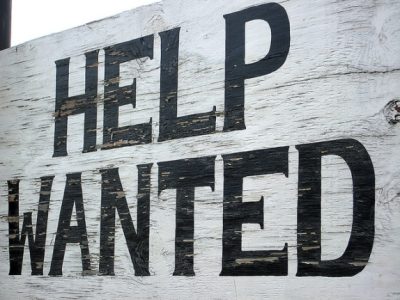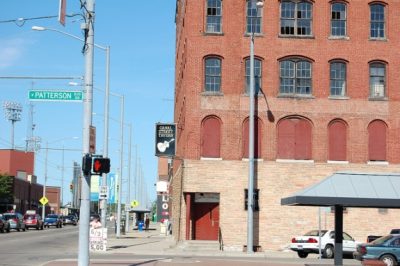Employment and Wages

Even Facebook Feels Brunt of Broken U.S. Immigration Policy
You know things are bad when a company as popular as Facebook has problems finding qualified talent. In a recent interview, Facebook’s chief operating officer, Sheryl Sandberg, remarked that our outdated immigration policy is a big reason Silicon Valley tech companies are fighting each other for highly skilled workers. Current immigration policy limits high-skilled worker visas (H-1B) to only 65,000 per year—a number that hardly meets demand. Even technology giant Microsoft recently testified before Congress that current immigration policies make finding talent a serious challenge. Until lawmakers revamp our outdated immigration system, technology companies like Facebook and Microsoft will continue to lose out on the foreign talent they need to stay ahead of the curve. Read More

Rebooting the American Dream: The Role of Immigration in a 21st Century Economy
There is plenty of evidence that immigration helps to fuel the U.S. economy, just as it has throughout our history. Immigrants continue to play an important role in the economy as workers, entrepreneurs, taxpayers, and consumers. However, most observers agree that our current immigration system is outdated and dysfunctional, making it more difficult for the U.S. to compete in the global marketplace. The last time Congress made significant changes to the employment-based immigration system was 1990, when the Immigration Act of 1990 created the five-tiered employment-based immigration system and the numerical limits used today. Our immigration system needs to be updated and overhauled, but inflamed rhetoric often obscures reform efforts. The first step in reforming our immigration system is to understand the basic facts surrounding the debate. This report seeks to answer some basic questions about the role of immigration in today’s economy. Read the Executive Summary Read the Full Report Read More

A Small Step Toward Reform: Bipartisan Bill Seeks to Raise Per Country Immigration Caps
An immigration bill introduced by Congressmen Lamar Smith and Jason Chaffetz and supported by Democrats may actually have a chance at passing in Congress. Scheduled for a mark up this week, the bill (H.R. 3012) would make small but significant changes to the way green cards are distributed by eliminating per country numerical limits on employment-based green cards and raising the limits on family-based green cards which go to immigrants from each country. Read More

Some Alabama Businesses Having Trouble Replacing Immigrant Workers
Just two weeks after Alabama’s extreme immigration law (HB 56) went into effect, many are reporting an exodus of immigrants, Latinos and their families from the state. While HB 56 supporters cheer the exodus as a victory, many Alabama businesses say they are left without an adequate workforce. Despite assurances from Governor Bentley that U.S. citizens will gladly take those jobs, Alabama farmers, meat processors and housing contractors are finding that U.S. citizen or legal workers are either not willing or able to take those jobs—leaving fruit to rot on the vine and home reconstructions projects unfinished. Not only will this hurt Alabama business in the short term, economists say, but will shrink the state’s economy and productivity over time. Read More

Fiscally Irresponsible: Immigration Enforcement without Reform Wastes Taxpayer Dollars
Many political pundits, GOP presidential aspirants, and Members of Congress want to have it both ways when it comes to federal spending on immigration. On the one hand, there is much talk about the need for fiscal austerity, and a Congressional “super-committee” is currently working on slashing federal spending in order to reduce the deficit. On the other hand, even though the Department of Homeland Security (DHS) just announced a record high number of deportations, some still want to increase federal spending on immigration enforcement; putting more Border Patrol boots on the ground, completing the border fence, and deploying an array of high-tech gadgetry. However, they miss one very important fact: piling on more immigration enforcement without immigration reform is a practical and fiscal dead-end. Read More

Dayton, Ohio Passes Plan to Revitalize Economy through Immigrant Integration
Shortly after Alabama began implementing their anti-immigration law (HB 56), Dayton, Ohio passed legislation that welcomes and integrates immigrants with the hope that they will revitalize their slowing economy. Faced with a declining population, Dayton’s City Commission voted unanimously last week to adopt the Welcome Dayton Plan—a plan that is tapping into the very economic stimulus that Alabama is driving out. Read More

Declining Cities Look to Immigrants to Revitalize Economies and Increase University Enrollment
In a recent speech to the U.S. Chamber of Commerce, New York City Mayor Michael Bloomberg highlighted the vital role immigrants play in stimulating economic growth. Bloomberg called for immigration policies that “spur innovation, increase the number of entrepreneurs who start businesses here, and create jobs for Americans on every rung of the economic ladder." With U.S. unemployment still hovering around 9%, some declining U.S. cities are also looking to harness the economic and entrepreneurial power of immigrants. Small towns, particularly in America’s rust belt, are contemplating programs that attract immigrant growth in hopes of revitalizing their towns and universities. Read More

Despite Lamar Smith’s Claims, E-Verify Is Not a Jobs Bill
BY TYLER MORAN, NATIONAL IMMIGRATION LAW CENTER While Chairman Lamar Smith (R-TX) promises that his mandatory E-Verify legislation (HR 2885) is a jobs creation bill, the mark-up of the bill in the House Judiciary Committee last week proved that it is anything but. Though the bill passed the committee by a 22-13 party line vote, the debate in committee and amendments offered make it crystal clear the bill would actually yield job losses. The debate leading up to the committee mark up also shows just how fractured conservatives have become on this issue—and much of it focuses on concerns over jobs. In fact, an unlikely coalition of progressive and conservative organizations joined together to oppose the bill, turning a host of job arguments upside down. Read More

Bridging the Ethnic Generation Gap: Why an Aging Population Will Depend on a New Generation of Workers
There is a generation gap in the United States and it is not only a difference in age. It is a difference in color as well. The predominantly white Baby Boomers are just this year beginning to reach retirement age. As they leave the labor force and the tax base over the next two decades, a new generation of Latinos and Asians will take their place in the U.S. economy as workers and taxpayers. It is the tax dollars of these immigrants and children of immigrants which will sustain the Social Security and Medicare programs upon which the Baby Boomers will rely. And it is these immigrants and children of immigrants who will become the doctors, nurses, health aides, and countless other workers upon whom so many aging Baby Boomers will depend. Read More

Give Me Your Tired, Your Poor, Your Huddled Masses…But Don’t Let Them Work?
Every year, thousands of people flee persecution in their home countries and seek safe haven in the United States. Many of them spend their entire savings on the journey, travel under life-threatening conditions, and arrive on our shores with not much more than the clothes on their backs. Those who are lucky find long-lost relatives, compatriots, or religious communities who help them get back on their feet. Then they begin the process of applying for asylum, which often takes years. Fortunately, our laws allow asylum seekers to obtain work authorization if their cases are not decided within 180 days. The 180 days, however, are counted by an “asylum clock,” which is too often stopped for unwarranted reasons. Read More
Make a contribution
Make a direct impact on the lives of immigrants.
